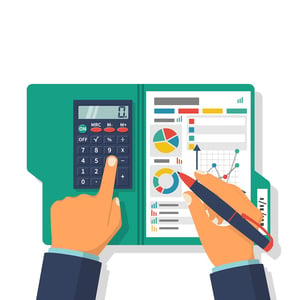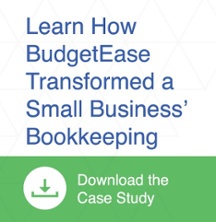
Deciding whether to capitalize or expense purchases is an important step for small business owners. How you record these costs can greatly affect whether your year-end income statement shows a profit or a loss. Having a clear Capitalization Policy helps guide your bookkeeper record transactions correctly in QuickBooks or other financial software, ensuring accuracy, consistency, and compliance with financial standards.
What Does Capitalizing Mean?
When you capitalize a purchase, you are converting the purchase to an asset on the balance sheet. For example, if you purchase $15,000 worth of equipment and capitalize it, your financial statements do not show that you expensed $15,000. Instead, the financial statements show that $15,000 was converted to an asset. Because capitalized costs are depreciated or amortized over a certain number of years, their effect on the company's income statement is not immediate. Instead, it is spread out throughout the asset's useful life.
Criteria to Capitalize a Purchase
The more costs that are capitalized rather than expensed, the greater the profit that can be reported to shareholders. That said, can you capitalize everything? To capitalize a purchase, it must be an asset that the company owns or controls that has future measurable economic value. If your purchase doesn’t fit those parameters, it cannot be capitalized.
Items that can be capitalized:- Land
- Building
- Costs associated with the defense of a registered patent, trademark, or similar intellectual property.
- Costs associated to purchase trademarks, patents, and copyrights
- Goodwill
- Betterments, restorations, or adaptations to tangible property
What Does Expensing an Asset Mean?
Costs are reported as expenses in the accounting period when they are used, have expired, or have no future economic value that can be measured. If you expense the $15,000 purchase noted above, your income statement will show the purchase as an outflow of funds.
You can easily see you spent the money. Unlike capitalizing a purchase, when you expense it, the expense directly reduces the company’s net income.
In addition to routine operating costs such as payroll, auto expenses, bank charges, etc., there are other items that are always expensed versus capitalized. They are:
- Advertising/marketing costs
- Research and development
- Costs associated with purchasing or starting a business
- Routine maintenance expenses
- Units of property with a useful life of one year or less
The Effect on Your Taxes
There are tax differences on capitalizing versus expensing a purchase. By expensing a purchase, you end up paying less tax because you report expenses sooner, which could mean lower income. Capitalizing has the opposite effect on taxes.
Questions?
The method used to recognize purchases and expenses affect the financial statements such as the balance sheet, income statement, and statement of cash flow. To that end, you want to make sure you understand how to treat purchases. We can help. Contact us at www.budgetease.biz.






